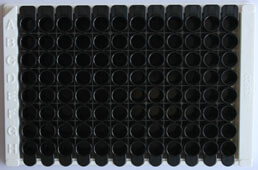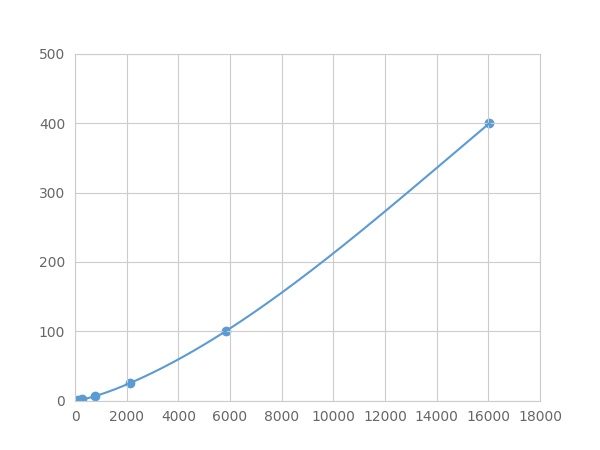Packages (Simulation)

Reagent Preparation

Image (I)
Image (II)
Certificate


Multiplex Assay Kit for Apolipoprotein A4 (APOA4) ,etc. by FLIA (Flow Luminescence Immunoassay)
ApoA-IV; ApoAIV; Apo-A4
(Note: Up to 8-plex in one testing reaction)
- Product No.LMB967Po
- Organism SpeciesSus scrofa; Porcine (Pig) Same name, Different species.
- Sample TypeSerum, plasma, tissue homogenates, cell lysates, cell culture supernates and other biological fluids
- Test MethodDouble-antibody Sandwich
- Assay Length3.5h
- Detection Range0.39-400ng/mL
- SensitivityThe minimum detectable dose of this kit is typically less than 0.13 ng/mL.
- DownloadInstruction Manual
- UOM 8Plex 7Plex 6Plex 5Plex 4Plex 3Plex 2Plex1Plex
- FOB
US$ 498
US$ 517
US$ 546
US$ 584
US$ 623
US$ 680
US$ 766
US$ 958
Add to Price Calculator
Result
For more details, please contact local distributors!
Specificity
This assay has high sensitivity and excellent specificity for detection of Apolipoprotein A4 (APOA4) ,etc. by FLIA (Flow Luminescence Immunoassay).
No significant cross-reactivity or interference between Apolipoprotein A4 (APOA4) ,etc. by FLIA (Flow Luminescence Immunoassay) and analogues was observed.
Recovery
Matrices listed below were spiked with certain level of recombinant Apolipoprotein A4 (APOA4) ,etc. by FLIA (Flow Luminescence Immunoassay) and the recovery rates were calculated by comparing the measured value to the expected amount of Apolipoprotein A4 (APOA4) ,etc. by FLIA (Flow Luminescence Immunoassay) in samples.
| Matrix | Recovery range (%) | Average(%) |
| serum(n=5) | 82-101 | 88 |
| EDTA plasma(n=5) | 98-105 | 102 |
| heparin plasma(n=5) | 78-103 | 84 |
Precision
Intra-assay Precision (Precision within an assay): 3 samples with low, middle and high level Apolipoprotein A4 (APOA4) ,etc. by FLIA (Flow Luminescence Immunoassay) were tested 20 times on one plate, respectively.
Inter-assay Precision (Precision between assays): 3 samples with low, middle and high level Apolipoprotein A4 (APOA4) ,etc. by FLIA (Flow Luminescence Immunoassay) were tested on 3 different plates, 8 replicates in each plate.
CV(%) = SD/meanX100
Intra-Assay: CV<10%
Inter-Assay: CV<12%
Linearity
The linearity of the kit was assayed by testing samples spiked with appropriate concentration of Apolipoprotein A4 (APOA4) ,etc. by FLIA (Flow Luminescence Immunoassay) and their serial dilutions. The results were demonstrated by the percentage of calculated concentration to the expected.
| Sample | 1:2 | 1:4 | 1:8 | 1:16 |
| serum(n=5) | 83-101% | 96-104% | 83-95% | 79-101% |
| EDTA plasma(n=5) | 78-104% | 85-101% | 84-101% | 92-101% |
| heparin plasma(n=5) | 88-96% | 87-99% | 78-94% | 87-105% |
Stability
The stability of kit is determined by the loss rate of activity. The loss rate of this kit is less than 5% within the expiration date under appropriate storage condition.
To minimize extra influence on the performance, operation procedures and lab conditions, especially room temperature, air humidity, incubator temperature should be strictly controlled. It is also strongly suggested that the whole assay is performed by the same operator from the beginning to the end.
Reagents and materials provided
| Reagents | Quantity | Reagents | Quantity |
| 96-well plate | 1 | Plate sealer for 96 wells | 4 |
| Pre-Mixed Standard | 2 | Standard Diluent | 1×20mL |
| Pre-Mixed Magnetic beads (22#:APOA4) | 1 | Analysis buffer | 1×20mL |
| Pre-Mixed Detection Reagent A | 1×120μL | Assay Diluent A | 1×12mL |
| Detection Reagent B (PE-SA) | 1×120μL | Assay Diluent B | 1×12mL |
| Sheath Fluid | 1×10mL | Wash Buffer (30 × concentrate) | 1×20mL |
| Instruction manual | 1 |
Assay procedure summary
1. Preparation of standards, reagents and samples before the experiment;
2. Add 100μL standard or sample to each well,
add 10μL magnetic beads, and incubate 90min at 37°C on shaker;
3. Remove liquid on magnetic frame, add 100μL prepared Detection Reagent A. Incubate 60min at 37°C on shaker;
4. Wash plate on magnetic frame for three times;
5. Add 100μL prepared Detection Reagent B, and incubate 30 min at 37°C on shaker;
6. Wash plate on magnetic frame for three times;
7. Add 100μL sheath solution, swirl for 2 minutes, read on the machine.
GIVEAWAYS
INCREMENT SERVICES
| Magazine | Citations |
| Biochimica et Biophysica Acta | Hepatic lipase- and endothelial lipase-deficiency in mice promotes macrophage-to-feces RCT and HDL antioxidant properties PubMed: 23328279 |
| Exp Ther Med. | Differential plasma proteome analysis in patients with high?altitude pulmonary edema at the acute and recovery phases Pubmed:24940404 |
| EuPA Open Proteomics | Human maternal plasma proteomic changes with parturition Sciencedirect:S2212968514000506 |
| BJOG | Development of concise audit standards for unplanned return to theate following gynaecological surgery at Gloucestershire Royal Hospital Doi: 10.1111 |
| Diagnostics | Systemic Alterations of Immune Response-Related Proteins during Glaucoma Development in the Murine Model DBA/2J Pubmed: 32585848 |
| VETERINARY PATHOLOGY | Pathology and Proteomics-Based Diagnosis of Localized Light-Chain Amyloidosis in Dogs and Cats Pubmed: 32880234 |
| Cancer Cell Int | Discovery and validation of FBLN1 and ANT3 as potential biomarkers for early detection of cervical cancer 33602229 |
| Catalog No. | Related products for research use of Sus scrofa; Porcine (Pig) Organism species | Applications (RESEARCH USE ONLY!) |
| RPB967Po01 | Recombinant Apolipoprotein A4 (APOA4) | Positive Control; Immunogen; SDS-PAGE; WB. |
| PAB967Po01 | Polyclonal Antibody to Apolipoprotein A4 (APOA4) | WB; IHC; ICC; IP. |
| LAB967Po81 | FITC-Linked Polyclonal Antibody to Apolipoprotein A4 (APOA4) | WB; IHC; ICC; IF. |
| LAB967Po71 | Biotin-Linked Polyclonal Antibody to Apolipoprotein A4 (APOA4) | WB; IHC; ICC. |
| MAB967Po21 | Monoclonal Antibody to Apolipoprotein A4 (APOA4) | WB; IHC; ICC; IP. |
| LAB967Po72 | Biotin-Linked Monoclonal Antibody to Apolipoprotein A4 (APOA4) | WB; IHC; ICC. |
| SEB967Po | ELISA Kit for Apolipoprotein A4 (APOA4) | Enzyme-linked immunosorbent assay for Antigen Detection. |
| LMB967Po | Multiplex Assay Kit for Apolipoprotein A4 (APOA4) ,etc. by FLIA (Flow Luminescence Immunoassay) | FLIA Kit for Antigen Detection. |
| PSB967Po01 | Antibody Pair for Apolipoprotein A4 (APOA4) | ELISA; CLIA; ELISPOT; Luminex; Immunochromatography and other Immunoassays. |
| KSB967Po01 | ELISA Kit DIY Materials for Apolipoprotein A4 (APOA4) | Main materials for "Do It(ELISA Kit) Yourself" |





